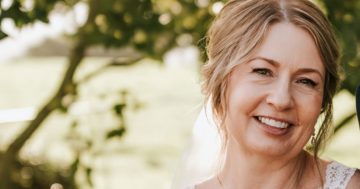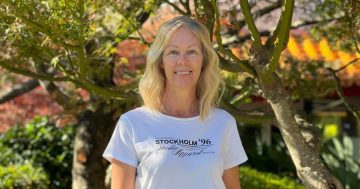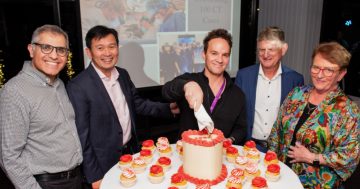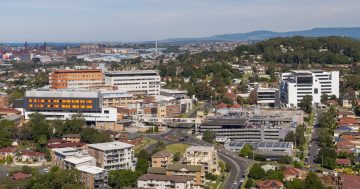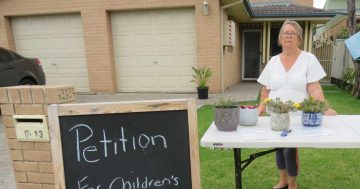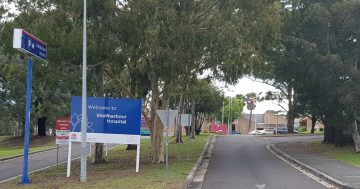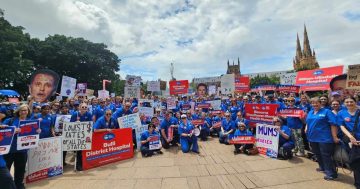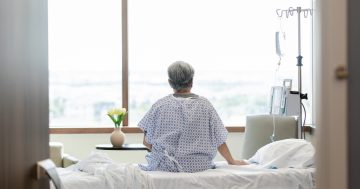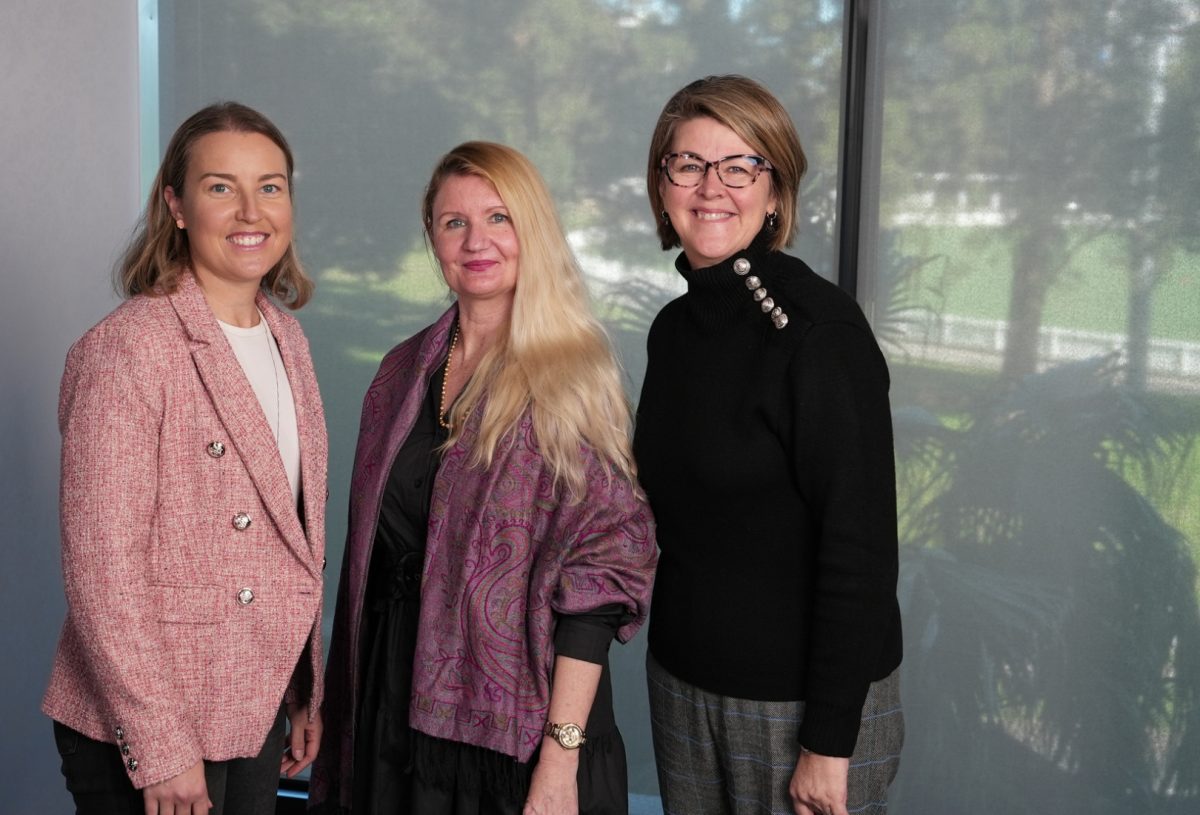
The Kind Side podcast creators ISLHD’s Frances Wood and consumer leader Stacey Lewis with NSW Health secretary Susan Pearce. Photo: Supplied.
Fran Wood and Stacey Lewis’ podcast The Kind Side started from a simple idea – to share the small acts of kindness that make a big difference in healthcare.
As a quality manager in the Illawarra Shoalhaven Local Health District (ISLHD), Fran saw firsthand the power of patient stories to inspire and connect.
Now, the past year their podcast has given a voice to those stories and changing perceptions about healthcare.
“It’s called The Kind Side as sort of a play on words on looking on the bright side, because there’s so many things that can happen in health that are challenging and traumatic, and you can always find something that went wrong,” Fran said.
“What we really wanted to do was seek out and promote the small acts of kindness that make a difference to everyone – it doesn’t matter if you’re a patient, a carer, a visitor or a staff member.”
The idea stemmed from Fran’s work on a patient storytelling experience program for ISLHD.
She would interview patients about their experiences, write up their stories, but then have to delete the recordings.
“It would break my heart, because I just thought, I wish the staff could hear how much the patients appreciate them, how much the little things they do matters to them,” she said.
“To hear in the patient’s own words is so much more powerful than a written document. So that’s where the idea came from.”
She said not long after that, NSW Ministry of Health released a program called KindLAB – a Shark Tank-style program where innovative initiatives to grow a culture of kindness in health could be pitched for funding.
She teamed up with consumer, carer and former social worker Stacey Lewis, and the two set out to capture the human experiences within the healthcare system.
“We don’t have a podcast studio. We go into hospitals and into community health centres and we speak with people in those spaces,” she said.
“So I’ve literally recorded conversations with patients at their bedside. I’ve spoken to staff on their work breaks.”
She said the goal was to better understand each other, giving the example of a patient sitting in a busy emergency department with people buzzing around, not understanding what they do and feeling frustrated at not being seen.
“Now, if I listen to the episode with Adam, our ED nurse, I’m suddenly understanding how this busy ED department is working, what everyone’s doing, what the nurses are doing, but importantly, I’m hearing how much they love their job and how dedicated they are to my care,” she said.
“And you know what? Maybe I’m going to have a little bit more patience and understanding. Maybe when that nurse finishes their shift, I’m going to say, ‘Thank you’.”
She said in addition, it helped those working in health to remember every patient was a person, giving the example of the episode with Rose who fractured her ankle.
“She’s got three small kids, she was stuck at a park waiting for an ambulance in excruciating pain, she came into ED and all of a sudden she’s in one of our wards awaiting emergency surgery, not sure what’s happening to her kids,” she said.
“For our staff to know that when you do a reassuring touch, when you put your hand on her leg and say, ‘It’s going to be alright’, that matters just as much as her getting the best clinical care that we can provide.”
Despite a diverse range of guests, she had been surprised to see common themes had emerged – the power of eye contact, a smile, a reassuring touch or a small gesture.
“It really is the little things,” she said.
“People just want to be seen. They want that personal connection.”
One episode that particularly struck a chord was a poem from Margaret, a patient living with mental illness who shares what it’s like to come into hospital and be admitted.
“I’ve heard that poem so many times, but every time I listen to it, it just almost brings me to tears. It’s so powerful,” she said.
“You will never look at someone living with mental illness the same when you’ve listened to that poem, because you can put yourself in their shoes, and that’s what this podcast is all about.”
The response to the podcast has been overwhelmingly positive.
Fran said 99 per cent of the staff and consumers who listened to the podcast and were surveyed said it gave them a better understanding of the healthcare experience and inspired them to perform a small act of kindness.
She has even had people reach out to say an episode helped them or a loved one cope with a particular health challenge.
Her vision is to expand The Kind Side statewide and incorporate it into pre-vocational education for healthcare workers.
“If I’m learning how to be a nurse, can I listen to some episodes of patients about what matters to them before I start in the workforce?” she said.
“In one of the episodes, Nora, she’s a renal dialysis patient, her act of kindness was how she supports our student nurses.
“She said some of the student nurses can be very nervous doing procedures on her for the first time and, as the patient who is really experienced in her health care, she provides the student nurses with a lot of reassurance.
“She says to them, ‘Just give it a try. It’s OK. It doesn’t matter if it doesn’t work the first time’.
“I thought, how beautiful, because we always think our staff are the ones caring for our patients, but so much of the time the patients are so worried about the staff.”
By giving voice to the human experiences within healthcare, Fran and Stacey hope to change perceptions and improve interactions – one small act of kindness at a time.
Listen to The Kind Side podcast.









